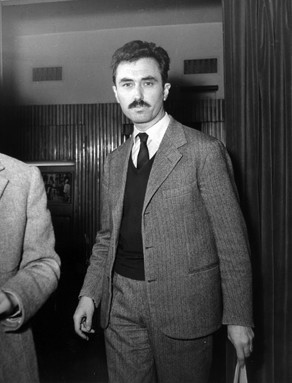Luciano Emmer
Настоящее имя: Luciano Emmer
Об исполнителе:
Luciano Emmer was born in Milan on January 19, 1918. He became interested in cinema during his student days and made short 16mm films. In 1938, after finishing secondary school, he moved to Rome with his friend and collaborator Enrico Gras, with whom he founded a production house and made innovative and important documentaries about the works of famous artists of the past like Giotto, Bosch, Carpaccio, Piero della Francesca and Goya. He was exiled to Switzerland during the war, and when he returned to Italy he ended his collaboration with Gras, who had made roughly twenty films between 1938 and 1948. In 1950, Emmer debuted in narrative cinema with Domenica d'agosto, a neorealist comedy, followed by a long series of portraits of Italian lower-middle-class society, which he made with the screenwriter and producer Sergio Amidei. He also collaborated with writers like Pratolini and Flaiano, making Parigi è sempre Parigi (1951), Le ragazze di piazza di Spagna (1952), Terza liceo (1953) e Camilla (1954), all based on stories about normal people and daily events. Without ever abandoning documentaries (Gli eroi dell'Artide was made in 1954), after his comedies Il Bigamo (1956) and Il Momento più bello (1957) he moved on to the world of Carosello, becoming one of their key exponents. In 1961, he returned to cinema with the semi-documentary film La Ragazza in vetrina, which he shot in Holland, but he then abandoned cinema once again and dedicated himself completely to television. During the 1960's and 70's, Emmer shot clips for Carosello, reports, and television series (Geminus, 1969, with Walter Chiari, and K2 + 1, 1970, with the Kessler twins and Johnny Dorelli). He also began filming art again, from the documentary series Io e (1972) and La terra dei naïfs jugoslavi (1979), all the way to his most recent documentary, I magici colori di Napoli (2004). In 1990, after an almost thirty-year hiatus, he returned to cinema with Basta! Ci faccio un film, which he wrote with his son David and which was presented in Venice. Over the next decade he made two full-length fiction films, Una lunga, lunga, lunga notte d'amore (2001) and L'acqua il fuoco(2003)which was also selected as a non-competing film in Venice.
